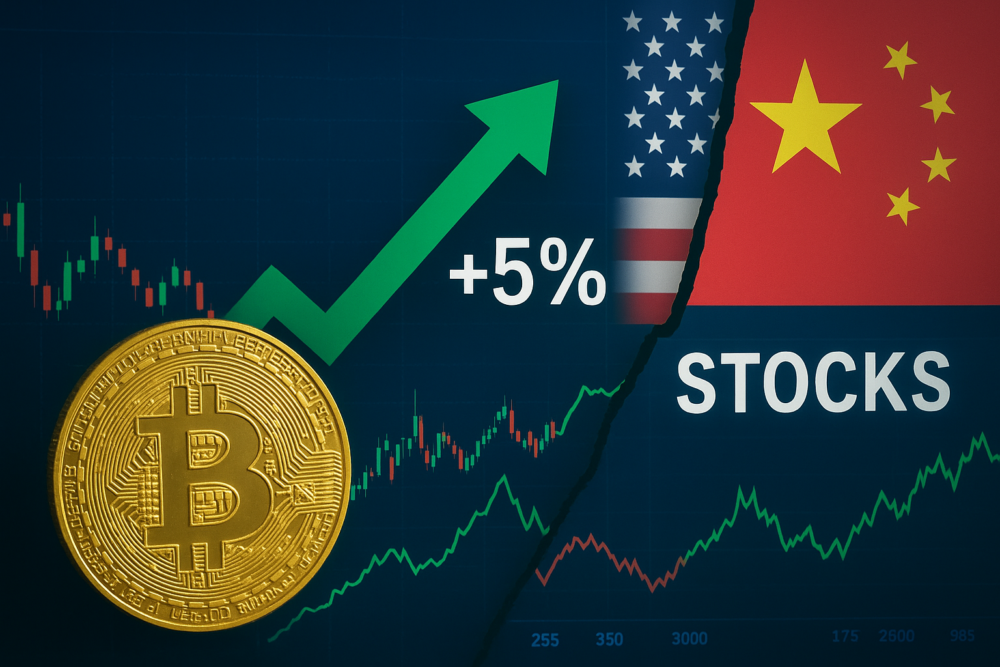Crypto-related stocks gained momentum Monday as optimism around U.S.-China trade talks boosted investor sentiment.
President Donald Trump expressed confidence that a deal allowing China to supply rare-earth magnets to the U.S. could be reached, easing earlier threats of a 100 per cent tariff. Treasury Secretary Scott Bessent also indicated progress in discussions over the weekend, fuelling gains across cryptocurrency and tech-related shares.
Bitcoin responded to the news, rising as high as USD$116,200 on Sunday before settling near USD$115,000 Monday. Among individual stocks, Robinhood Markets Inc (NASDAQ: HOOD) climbed 5 per cent. Bitcoin miners and AI infrastructure companies, including Hut 8 Corp (NASDAQ: HUT) (TSE: HUT), CleanSpark Inc (NASDAQ: CLSK), and IREN Limited (NASDAQ: IREN), gained between 2 per cent and 3 per cent. Meanwhile, Eric Trump-led American Bitcoin (ABTC) surged 10.5 per cent after acquiring an additional 1,414 bitcoin, raising its total holdings to 3,865. Conversely, stablecoin issuer Circle Internet Group (NYSE: CRCL) slipped 2.3 per cent.
Despite the gains in crypto, the rare-earth supply remains central to the trade talks. China controls roughly 70 per cent of global production of these materials, which are critical for electric vehicle motors, wind turbines, and military equipment. Trump is scheduled to meet Chinese President Xi Jinping on Thursday to discuss the agreement’s details further.
Read more: Canada set to introduce stablecoin framework soon
Read more: Changpeng Zhao receives Trump pardon sparking regulatory controversy
China has had a long and contentious relationship with crypto
Traders are also eyeing the Federal Reserve’s upcoming policy decision. The central bank is widely expected to cut its benchmark interest rate by 25 basis points, lowering borrowing costs and potentially encouraging more risk-taking in cryptocurrencies and tech stocks. Consequently, investors remain alert to developments in both global trade and monetary policy.
China has maintained a strict stance on cryptocurrency for years. The government banned bitcoin trading in 2017 and later prohibited crypto mining entirely by 2021. Consequently, many Chinese miners and blockchain firms relocated overseas to continue operations. This migration created a global Chinese crypto diaspora, with companies seeking regulatory-friendly countries. For example, Huobi and OKX, once dominant in China, moved significant operations abroad.
Meanwhile, mining hardware producers like Bitmain Technologies Ltd and Canaan Inc (NASDAQ: CAN) also expanded internationally to maintain market share. Additionally, China has focused on developing its own digital yuan, emphasizing state control over decentralized cryptocurrencies. The government’s approach has limited domestic crypto activity but also reshaped the global industry. .














